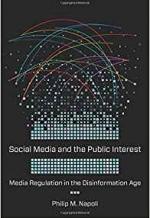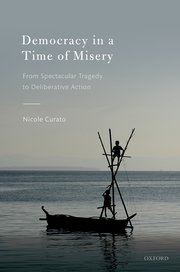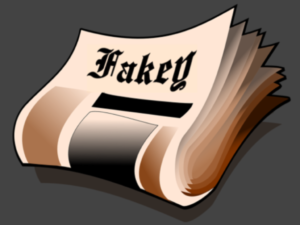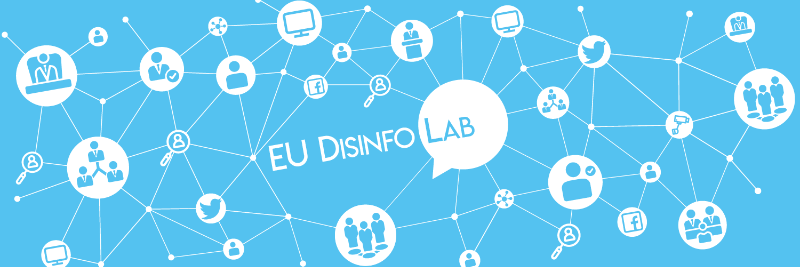A group of philanthropies working with Facebook Inc to study the social network’s impact on democracy threatened on Tuesday to quit, saying the company had failed to make data available to researchers as pledged, Reuters reports:
The funders said in a statement that Facebook had granted the 83 scholars selected for the project access to “only a portion of what they were told they could expect,” which made it impossible for some to carry out their research. They have given Facebook until Sept. 30 to provide the data….The funding consortium includes both the conservative Charles Koch Foundation and Silicon Valley’s Omidyar Network.
“We hope Facebook (not to mention other platform companies) will find a way to provide deeply robust privacy-protected data,” they said, as “independent scholarly analysis of social media platforms is essential” to understanding elections and democracy around the world.
Today social-media companies such as Facebook and Twitter are the gatekeepers of meaningful freedom of speech. This is problematic, New York Law School professor Nadine Strossen tells The Atlantic‘s Elyse Kelly (above) because these companies often self-regulate in ways that violate the First Amendment.
 Remember when people actually believed that Facebook and Twitter would facilitate the spread of democracy and human rights and the toppling of autocracies around the world? Those hopes now seem painfully naive, notes Phillip Longman, policy director at the Open Markets Institute. From Russia to Myanmar to Pennsylvania Avenue, social media increasingly looks like a boon, not a threat, to illiberal regimes. What went wrong? And how can we fix it?
Remember when people actually believed that Facebook and Twitter would facilitate the spread of democracy and human rights and the toppling of autocracies around the world? Those hopes now seem painfully naive, notes Phillip Longman, policy director at the Open Markets Institute. From Russia to Myanmar to Pennsylvania Avenue, social media increasingly looks like a boon, not a threat, to illiberal regimes. What went wrong? And how can we fix it?
Those are the questions that Philip M. Napoli, a professor of public policy at Duke University, sets out to answer in his new book, Social Media and the Public Interest: Media Regulation in the Disinformation Age, he writes for the Washington Monthly:
The rise of social media platform monopolies like Facebook and Google, Napoli argues, has created what he calls an “algorithmic marketplace of ideas” that is most notable for the waste products it produces. These include the loss of competition in the truth business caused by algorithmically engineered “filter bubbles” as well as the resulting spread of fake news. This market failure is so deep, Napoli argues, that it cannot be solved by conventional antitrust or other competition policies….As Napoli turns to solutions, he becomes exceedingly vague, but he seems to suggest prohibiting social media platforms from disseminating information that undermines the functioning of democracy. The only specific example he gives, unfortunately, is “fake news that leads to misinformed voting behaviors.” And even there, his prescription is lacking detail. Who decides what is fake news? RTWT
 If we are now living in the age of disinformation challenging democracy, arguably the Philippines was Patient Zero, democracy expert Nicole Curato* tells The Interpreter’s Rules Based Audio. Are disruptive populists the new normal for democracies?
If we are now living in the age of disinformation challenging democracy, arguably the Philippines was Patient Zero, democracy expert Nicole Curato* tells The Interpreter’s Rules Based Audio. Are disruptive populists the new normal for democracies?
The Centre for Democracy and Development (CDD) in partnership with the United States Agency for International Development (USAID), and the National Democratic Institute (NDI) has expressed concern over the growing circulation of fake news through the social media and its possible threats on electoral integrity of Nigeria.
Audrey Tang, Digital Minister of Taiwan, tells Steal This Show ‘How To Hack A Democracy.’
*Nicole Curato is an Associate Professor at the Centre for Deliberative Democracy and Global Governance at the University of Canberra. She is the author of two books published this year: Democracy in a Time of Misery: From Spectacular Tragedies to Deliberative Action and Power in Deliberative Democracy: Norms, Forums, Systems (with Marit Hammond and John Min).
 Join EU-Disinfo for a webinar on Fakey: an app that simulates a social media news feed. Players either “Share,” “Like,” or “Fact-check” a post, and after they click one of these, they find out whether the article came from a legitimate or clickbait source. This gamified approach lets users score points by sharing content from credible news outlets and by fact-checking questionable sources.
Join EU-Disinfo for a webinar on Fakey: an app that simulates a social media news feed. Players either “Share,” “Like,” or “Fact-check” a post, and after they click one of these, they find out whether the article came from a legitimate or clickbait source. This gamified approach lets users score points by sharing content from credible news outlets and by fact-checking questionable sources.
19th September 2019 between 4:00 pm – 5:00 pm CEST Please visit and join the meeting space from your computer, tablet, or smartphone. You can also dial in using your phone: Access Code: 487-424-285








